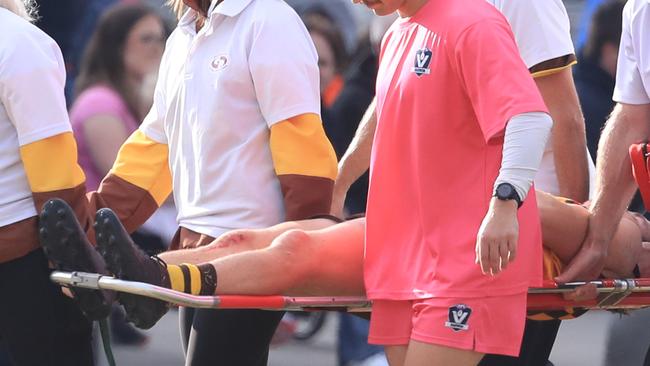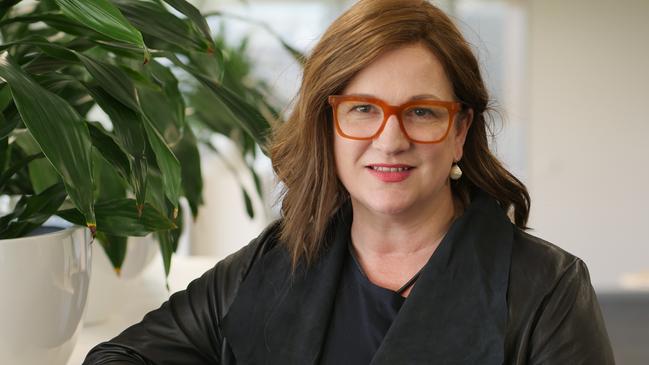Local footy clubs aren’t required to report concussions to the AFL
Despite a crackdown on concussion in local footy, it can be revealed that the AFL and local leagues have little to no oversight on the number of head injuries occurring each week. Here’s why.

Local Footy
Don't miss out on the headlines from Local Footy. Followed categories will be added to My News.
Local football clubs and leagues have no obligation to monitor or report the amount of concussion injuries occurring in their games.
Despite the AFL mandating a 21-day stand down policy for concussion at local level at the start of the season, it can be revealed that the AFL’s Concussion Guidelines for Community Football do not require clubs to report concussions to their league.
At the elite level, in the AFL and AFLW, players are only required to miss 12 days after suffering concussion.
Some leagues such as the Victorian Amateur Football Association are requiring clubs to report the amount of concussive injuries each week, but most others have little to no formal oversight of the number of head injuries at their matches.
“The AFL does not have data from community (level) on the number of concussions reported this season,” an AFL Victoria spokesperson said.
“We want to continue to create opportunities to better understand the incidence and management of concussion at community level.”
The spokesperson said the AFL was investigating “functionality within the PlayHQ system to report and record concussion incidents to continue to support and integrate the management of concussion into the industry-wide competition platform”.
“Incorporating the reporting into PlayHQ is an important step, as is the ongoing education and development of supporting material for community leagues and club,” he said.
The revelations come as Australia’s leading medical professionals are calling for a national approach to concussion while also stressing the need for the collation of full data around head injuries.
“Data drives good decisions,” Royal Australian College of General Practitioners (RACGP) president Nicole Higgins said.
“We need to be able to collect the data from the football clubs and the players and the medical professionals so we make really good decisions for the future, and to help us better understand head injuries and concussion.”

Earlier this year, the Australian Sport Commission recommended the introduction of the 21-day stand down period for community sport participants who had suffered a concussion.
Sports’ governing bodies including the AFL, Netball Australia and Basketball Australia elected to adopt the recommendations while others, including the NRL, have elected to follow their own concussion protocols.
Dr Higgins said “paperwork and the red tape” often made it challenging for GPs.
“I certainly would think that GPs would be more than capable of assessing head injuries and returning to sport. The challenge has been the different requirements from different sports as well, and making sure we’re compliant with all the different codes,” she said.
“Different levels of skills will vary among regions and people’s own involvement in sport. It would be helpful if we actually had a nationally consistent approach to head injuries and the research to support that.
“There is an increased awareness about concussion, but also the significance of a head injury.
“There’s no such thing as just a little knock.”
While sporting participants need a medical certificate to return to action, Dr Higgins called for greater education to help deal with the initial diagnosis.
“Research is going to be essential for making sure we have good evidence to drive decisions, and also to understand what happens, especially with our children and our growing brains and the impact of head injuries over time,” she said.
“That’s something we’ve supported as a profession.
“The other challenge is making sure that we’ve got the people who are there at the time, you know, on the footy field or the basketball court, who are providing first aid treatment or training support, making sure that they’re adequately skilled and supported as well to manage head injuries.”
This masthead contacted several metropolitan competitions asking for their league’s concussion protocols.
Only the Southern Football Netball League responded and said they followed the AFL’s guidelines.





